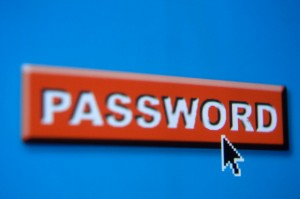
Protecting one’s passwords in the online world has always been important, yet today it raises even more serious questions concerning the security awareness of the users. Several days ago it was reported on the news about a cybercrime group from Russia that managed to steal 1.2 billion passwords and usernames from more than 400 000 websites. These security threats have to be taken very seriously, and users need to do everything possible to protect their passwords. There are a few things that the consumers might do in order to protect their passwords.
Think of Strong Passwords
The so-called strong passwords are the ones that are hard to crack. They consist of at least eight characters or even longer and they do not include the username, the real name and any other personal information that can identify the user. As a rule the best-possible password is a combination of lowercase and uppercase letters, numbers and special characters.
Do Not Use One Password
Many people use one password to enter in all their accounts. This is very wrong as once the hacker gets access to one’s account information, he / she can also gain access to all the accounts. For that reason and to protect one’s personal information, the user shall have a unique password for each account. By having different passwords for the various logins, the hackers will not be able to access your accounts using the same information.
Change the Passwords on the Most-Important Sites
To be on the safe side, users should change the passwords they are using on the websites that contain private data – a lot of personal information, as well as financial details. The cybercrime groups that have the user’s credentials will try to use them in order to access more information on the user’s other accounts. Thus, for security awareness purposes, the user should not use one and the same password on several sites. The hackers usually try to use the stolen credentials on several websites.
Check Carefully the Email Credentials
Many users do not seem to understand that their email account can open the door to everything they do online. Users often reset their passwords on other websites they are using and get a recovery password link on their email account. Users should better save the information elsewhere and delete these emails. They should also not open emails from unknown senders and should not click on suspicious email attachments and links that look strange and that are sent through email, messages or social networks. The confidential information concerning the passwords should also not be sent by emails.
Use the Two-Factor Authentication
Nowadays most of the websites offer the so-called two-step authentication. This allows for a second gate of security to the user’s account. The users are asked to enter their password and then to enter a second code that they receive on their mobile device through a text message or they get a token generator set to the login to the site. Not all users are happy with the two-factor authentication as it brings complexity while logging in, yet it highly improves the security of the account. This two-factor authentication is excellent to use, especially with your most important accounts.
According to information provided from experts in this filed, the average user has twenty-five accounts that require passwords and only five different passwords. The users should think of more creative passwords and change them regularly, at least on the most important accounts they have. The experts further say that almost 80 % of data breaches can be eliminated if people use the two-factor authentication.

